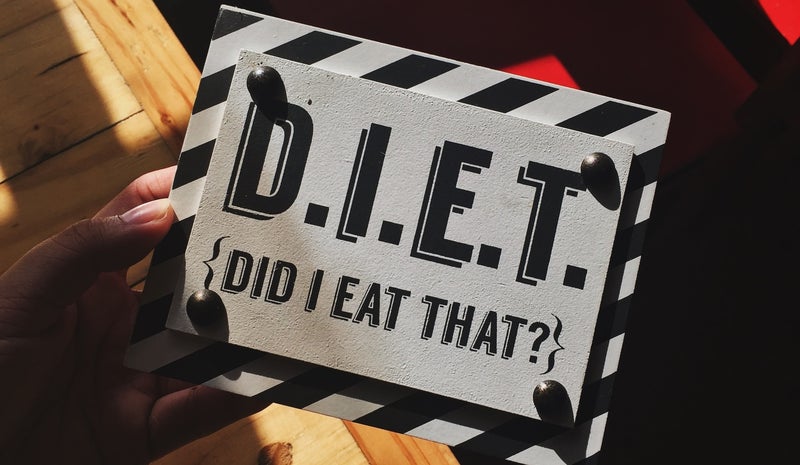
Welcome to the world of diet myths, where kale is king, and carbs are the evil stepmother! But fear not, dear reader, because we’re here to debunk these myths with a touch of humor and a whole lot of truth. So, grab your favorite snack (yes, even if it’s a carb) and settle in for a myth-busting journey that’s as enlightening as it is entertaining
1. Carbs Are the Villains of the Food World
Let’s kick things off with the most notorious diet myth: carbs are bad for you. Picture carbs as the misunderstood hero of the food universe. While they’ve been blamed for everything from weight gain to world hunger (okay, maybe not that last one), carbs are actually essential for energy.
Carbohydrates fuel your brain and muscles, making them crucial for both mental and physical performance. The key is choosing the right kind of carbs—think whole grains, fruits, and veggies. So, next time you’re eyeing that bowl of quinoa, remember: carbs are your friends, not foes!
2. All Calories Are Created Equal
In the world of diet myths, this one’s a doozy. The idea that a calorie is a calorie, no matter where it comes from, is about as true as a unicorn in your backyard. Sure, 100 calories of broccoli is technically the same as 100 calories of candy in terms of energy, but the nutritional impact is miles apart.
When you eat, your body isn’t just counting calories—it’s absorbing nutrients. Nutrient-dense foods like fruits, veggies, and lean proteins pack a punch in the health department, while empty-calorie foods leave you feeling sluggish and unsatisfied. So, when it comes to calories, quality beats quantity every time.
3. Fat-Free Means Healthy
Ah, the ‘90s—an era of boy bands, frosted tips, and fat-free everything. But just because it’s fat-free doesn’t mean it’s healthy. In fact, many fat-free products compensate for the lack of flavor by adding sugar and other unhealthy ingredients.
Fat is an essential nutrient that helps absorb vitamins and supports brain health. The trick is choosing the right kinds of fat, like those found in avocados, nuts, and olive oil. So, don’t fear the fat—embrace it, in moderation, of course!
4. Detox Diets Are the Key to Health
If only detox diets were as magical as they sound. Sadly, the notion that you can cleanse your body of toxins by sipping on lemon water for a week is more fairy tale than fact. Your body is perfectly capable of detoxifying itself, thanks to your liver and kidneys.
Detox diets often lead to nutrient deficiencies and can slow down your metabolism. Instead of a detox, focus on a balanced diet rich in whole foods, and let your body’s natural detox system do its job. Your liver will thank you!
5. Eating Late at Night Causes Weight Gain
The clock strikes midnight, and suddenly, that fridge raid feels like a crime. But fear not, for the timing of your meals has less impact on weight gain than you might think. What matters more is the total calories consumed versus burned throughout the day.
Eating late at night can lead to weight gain if it causes you to go over your daily calorie limit. However, if you’re hungry, a healthy snack can keep you from overeating at breakfast. So, go ahead and snack responsibly, even if it’s past your bedtime.
6. Supplements Can Replace Food
Imagine if popping a pill could replace a balanced meal. Sounds convenient, right? But the truth is, supplements are just that—supplements. They’re meant to fill in nutritional gaps, not replace whole foods.
Whole foods provide a complex matrix of nutrients that supplements can’t replicate. Plus, they offer fiber, which is crucial for digestive health. So while vitamins and minerals have their place, they’re not a substitute for a healthy diet.
7. Gluten-Free Equals Weight Loss
Going gluten-free has become as trendy as avocado toast, but not everyone needs to jump on the bandwagon. Unless you have celiac disease or a gluten sensitivity, there’s no need to cut out gluten for weight loss.
In fact, many gluten-free products are higher in calories and sugar than their gluten-containing counterparts. Instead of focusing on gluten, aim for a balanced diet that includes a variety of foods to support your health.
8. You Must Eat Breakfast to Boost Metabolism
Breakfast is often touted as the most important meal of the day, but is it really the key to revving up your metabolism? While it can help some people manage their weight, skipping breakfast doesn’t automatically doom you to weight gain.
What’s important is finding an eating pattern that works for you. Whether you’re an early bird or a brunch enthusiast, listen to your hunger cues and eat when you’re truly hungry.
9. You Can Spot-Reduce Fat
If only we could choose where to lose fat, life would be a bit easier, wouldn’t it? Unfortunately, spot reduction is a myth as persistent as it is alluring. While targeted exercises can strengthen specific muscles, they don’t burn fat in isolated areas.
Fat loss occurs throughout the body and is influenced by genetics, diet, and overall activity level. So, instead of focusing on one area, aim for a balanced fitness routine that includes both strength training and cardio.
10. More Exercise Means Faster Weight Loss
In the quest for weight loss, more exercise might seem like the obvious solution. However, over-exercising can lead to burnout, injuries, and even weight gain due to increased appetite and stress hormones.
The key is finding a balance that includes regular physical activity you enjoy, along with rest and recovery. Listen to your body and give it the time it needs to rest, repair, and grow stronger.
Add comment
Comments